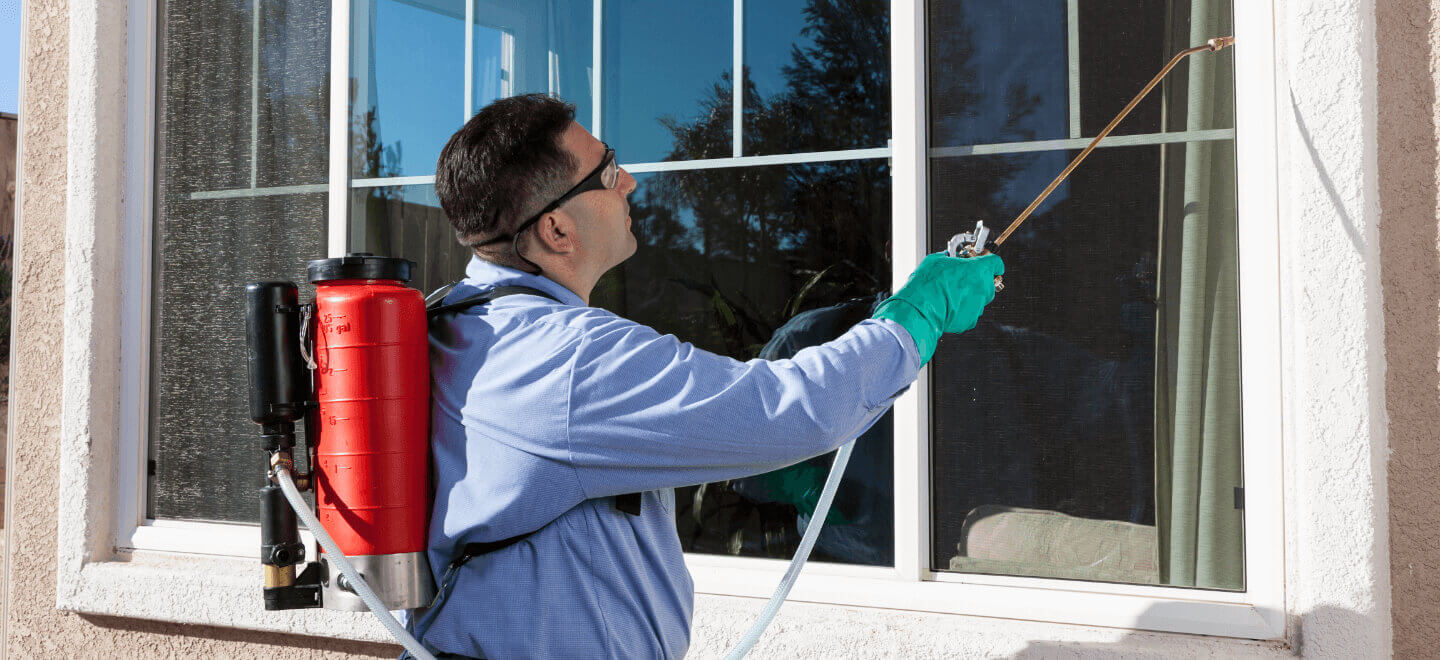Grasping the Art of Pest Control: Proven Methods for Long-Term Avoidance and Elimination
Insect problems can be a consistent obstacle for home owners and companies alike, needing a strategic strategy to efficiently take care of and eliminate these undesirable intruders. By understanding the art of insect control with tried and tested techniques for long-lasting avoidance and obliteration, one can establish a positive protection versus potential dangers. Recognizing the habits of parasites, implementing integrated parasite management techniques, and making use of all-natural treatments are just a few essential elements necessary to attaining long lasting success in this venture. Nonetheless, the intricacies of preserving cleanliness, conducting routine evaluations, and attentive surveillance play equally crucial roles in sustaining a pest-free environment. As the battle against insects proceeds to evolve, adopting an extensive method ends up being vital in securing your residential or commercial property from possible damage.
Recognizing Bug Habits
To successfully apply insect control methods, it is crucial to understand the elaborate behaviors exhibited by different insects in different atmospheres. By examining these habits, bug control specialists can identify the most vulnerable points in the pest's life cycle to target interventions more effectively.
For example, rodents like rats and mice are nighttime animals that like dark, remote areas near to a food source. a1 residential pest control portland or bed bugs. Understanding this, bug control experts can concentrate on securing entrance points and getting rid of food attractants to prevent these bugs. On the other hand, pests such as roaches thrive in cozy, damp areas with accessibility to water. By addressing dampness concerns and securing cracks and crevices, infestations can be considerably reduced.
Applying Integrated Insect Monitoring
Implementing Integrated Parasite Administration entails using an alternative approach to attend to pest problems by incorporating various control methods and techniques. This approach emphasizes avoidance, surveillance, and control of insects with a combination of biological, cultural, physical, and chemical treatments. By integrating several techniques, Integrated Insect Monitoring (IPM) aims to lessen using chemicals while effectively handling pest populaces.
One key element of IPM is determining the details pest problem and comprehending its behavior and life process. This expertise helps in figuring out one of the most appropriate control steps to carry out. Avoidance is additionally an essential principle of IPM, concentrating on getting rid of aspects that attract bugs, such as food, water, and shelter. Regular tracking and examination are important to find parasite problems early and avoid them from rising.
Additionally, IPM promotes the usage of sustainable and environmentally friendly parasite control techniques to lessen harm to non-target microorganisms and the surrounding community - portland exterminators a1 for bed bugs. By adopting an Integrated Parasite Administration approach, businesses and people can efficiently take care of parasites while minimizing dependence on chemical pesticides
Making Use Of Natural Remedies
Building upon the structure of Integrated Pest Monitoring, a change towards making use of natural solutions offers an eco-friendly technique to pest control. All-natural treatments harness the power of nature to deter and remove insects without the usage of severe chemicals that can our website damage the environment, people, and useful microorganisms.

In addition, growing pest-repelling plants like marigolds, lavender, and mint around gardens and homes can assist discourage parasites naturally. These plants produce smells that insects locate unpleasant, driving them away image source without the demand for chemical intervention.
Keeping Cleanliness and Health

Implementing a routine cleansing timetable and making certain all participants of the house or staff members are informed on appropriate hygiene practices can go a long way in pest prevention. By keeping sanitation and hygiene standards, the environment becomes much less welcoming to bugs, eventually sustaining long-term parasite control initiatives.
Routine Evaluations and Monitoring
Normal assessments and checking play a crucial duty in proactively determining and dealing with potential pest concerns prior to they escalate. By performing routine inspections of both the exterior and interior of a building, bug control professionals can identify early signs of invasions, insect access factors, and problems for bug activity. Monitoring includes using catches, lures, and other tools to track bug activity degrees and species present on the facilities. This information is very useful for determining one of the most effective treatment approaches and examining the success of bug control strategies in time.
Regular surveillance enables for the early discovery of bug troubles, enabling swift try this website intervention to avoid extensive invasions that can be tough and expensive to remove. Moreover, regular evaluations and checking aid to abide by governing needs and keep a secure, pest-free setting for owners. Implementing a proactive method with routine evaluations and monitoring is a cornerstone of effective pest management, providing assurance and long-term protection against parasite dangers.
Verdict
In verdict, understanding the art of bug control involves understanding insect habits, applying incorporated parasite monitoring, making use of all-natural solutions, keeping sanitation and health, and performing normal examinations and surveillance. By adhering to these tried and tested strategies for lasting avoidance and obliteration, people can effectively handle parasite problems and create a healthier and safer setting for themselves and their environments.
To properly execute parasite control techniques, it is important to understand the elaborate actions exhibited by numerous insects in various environments (a1 residential pest control portland or bed bugs). By studying these habits, parasite control professionals can determine the most prone points in the insect's life cycle to target treatments much more successfully
Applying Integrated Pest Administration includes making use of a holistic method to attend to parasite concerns by combining various control strategies and methods. By maintaining cleanliness and hygiene requirements, the atmosphere comes to be much less hospitable to pests, eventually supporting long-lasting insect control efforts.
By performing regular assessments of both the inside and exterior of a residential or commercial property, insect control experts can find very early indications of invasions, bug entrance points, and conditions conducive to insect activity.